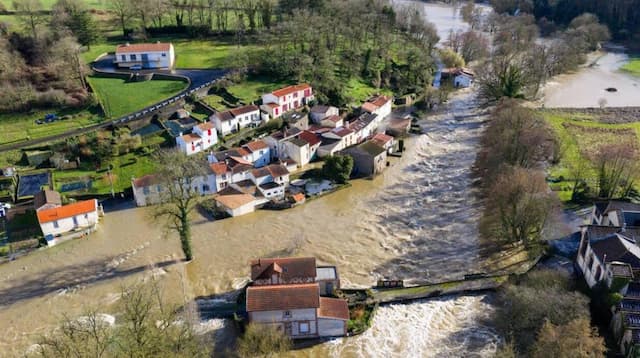After a Harsh Winter for Bees, the Alarm Call of Beekeepers

Beekeepers demonstrated on Thursday in several cities in France to claim exceptional help and a more favourable environment for pollinating bees.
At the end of a harsh winter for bees, beekeepers demonstrated on Thursday in several cities across France to claim exceptional help and a more favorable environment for pollinators. With the support of a surprise guest: Nicolas Hulot .
On the Esplanade des Invalides in Paris, gathered around fifteen beehives and coffins, beekeepers from Ile-de-France, Brittany and Dordogne , paid a last symbolic tribute to their swarms of bees, which have not passed the winter.
“We must save the national beekeeping and stop the hecatomb,” said Francois Le Dudal, a young beekeeper in Brittany. “Heart, courage and work now! He exhorted at this false funeral ceremony where beekeepers had put on their work clothes, white overalls, protective caps, smokers.
“We must stop procrastinating because today, it has taken such proportions that in some regions beekeeping is no longer viable,” said Gilles Lanio, president of the National Union of French Apiculture (Unaf). ).
For several years, beekeepers have suffered an average loss of 30% of their herds in winter, according to him. “Today, we have reached an additional milestone”, with mortality rates that can rise to 40, 50 or even 80%, he was alarmed.

“I had six hives two years ago, last year I had only two and today zero,” said Julien, amateur beekeeper in the Drôme, came to Lyon to demonstrate in front of the prefecture. Rhone.
He lamented “the silent death of settlements during the winter”. “My grandfather did beekeeping for 30 years and today he gave up,” he says.
“We are the only agricultural profession not to receive aid,” lamented Olivier Fernandez, president of the Union of Apiculturists Midi-Pyrenees, present at a rally in Toulouse.
“Your best mediator”
This activity has suffered for several years: the number of beekeepers – amateurs and professionals combined – was 85,000 in 1995, compared to 70,000 (including 2,000 professionals) in 2017 and the production of honey was divided by three, a little over 10,000 tonnes a year.
The Asian hornet or Varroa , a parasitic mite, are threats to bees. But the biggest danger comes from neonicotinoids , insecticides used to coat seeds, which attack the nervous system of insects, disorient and weaken bees and other pollinators.
Before the introduction of these substances into the fields in the mid-1990s, bee mortalities were only around 5%, Unaf said. With the current loss rates, beekeepers may shut the door, their representatives alarmed.
The profession has not yet calculated its losses precisely. Surprise guest of the Paris demonstration, the Minister of the ecological transition Nicolas Hulot invited them to do it as soon as possible, to identify “emergency measures” to take.
“I do not want any more that these subjects are different (…). I want to be your best mediator and ambassador, “he promised, while beekeepers feel unheard of by the Ministry of Agriculture and have called directly to Emmanuel Macron.
France and the European Union have begun to act against neonicotinoids. Paris has planned to ban them from 1st September 2018, with possible derogations on a case by case basis until the 1st July 2020.
At the European level, three neonicotinoids – clothianidin, thiamethoxam and imidacloprid – have had limited use, before being banned for all crops in the field and not only for greenhouse crops.
But this is not a quick fix because neonicotinoids persist in water and soil. And the European moratorium on the three substances has led to a greater consumption in France of a fourth, thiacloprid.
Enjoyed this? Get the week’s top France stories
One email every Sunday. Unsubscribe anytime.


